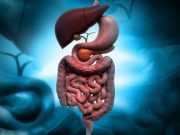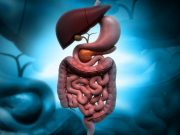Tag: Gastrointestinal Problems
GI Symptoms Persist in Most Female Colorectal Cancer Survivors
Most common symptoms include bloating/gas, constipation, diarrhea
Lawsuit Against Makers of Ozempic, Mounjaro Claim Meds Caused ‘Stomach Paralysis’
Lawsuit alleges drugmakers failed to adequately warn patients about the risk for severe stomach problems
Spleen Volume Linked to Outcome After HSCT for Leukemia Patients
Higher spleen volume tied to inferior overall survival and increased incidence of nonrelapse mortality for patients with AML undergoing hematopoietic stem cell transplant
GI Disease Is Most Common Diagnosis for Nonmigrant U.S. Travelers
Migrant travelers most often receive diagnoses of vitamin D deficiency and latent tuberculosis
Fecal Microbiota Transplant Effective for Immune-Mediated Colitis
92 percent of 12 patients with refractory immune checkpoint inhibitor-induced colitis achieved clinical remission at end of study
High Visualization Found With Magnetically Controlled Capsule Endoscopy
In study involving 40 patients, high patient satisfaction was observed and no adverse events were recorded
Allowing Bedside Nurses to Order C. Difficile Testing Cuts Time to Results
However, change in policy not tied to difference seen in time to initiating treatment
Unenhanced CT 30 Percent Less Accurate Than Enhanced for ED Evaluation
Findings seen for adults presenting to the emergency department for abdominal pain
Fecal Microbiota Transplantation Aids Resolution of Recurrent C. Difficile
Use of FMT in immunocompetent adults with recurrent Clostridioides difficile infection leads to significant increase in resolution














